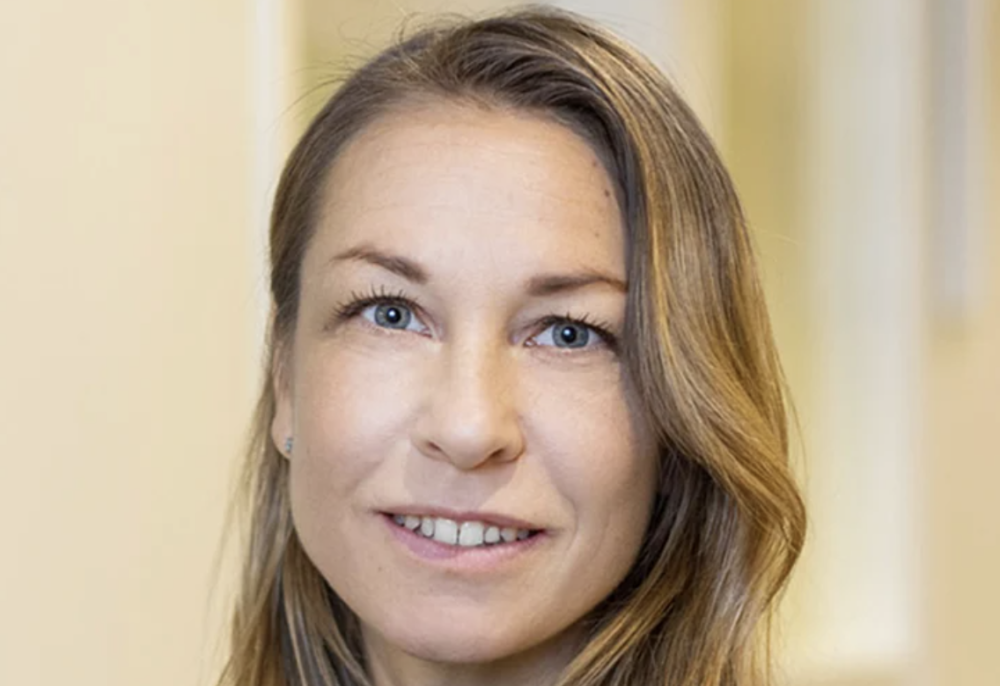Advertisement
The potential of joint Nordic life science efforts

The task of NordForsk is to facilitate research collaboration in the Nordic region, and within life sciences this is perhaps now more important than ever.
The Nordic countries have handled the COVID-19 pandemic differently in many aspects and learning from each other would hopefully benefit our preparedness for another pandemic, or even a new wave of this one. NordForsk, an organization under the Nordic Council of Ministers that facilitates and provides funding for Nordic cooperation on research and research infrastructure, has taken the initiative to organize joint Nordic research to study and compare how the crisis has been handled across the Nordics.
“COVID-19 is probably the biggest crisis to affect our part of the world since World War Two. Severe measures affecting all sectors of society have been taken to prevent the spread of the virus in order to save lives and avoid collapse in the health care systems. The COVID-19 pandemic has, and will for a long time have, severe impact on our lives and societies,” says Arne Flåøyen, Director, NordForsk. “The early responses to COVID-19 have shown that our societies were not well prepared although we have been warned about a pandemic for years. The five Nordic countries have chosen different strategies to handle the same crisis. There are however many similarities at the practical level. Nevertheless, the differences are big enough to make comparisons between countries and responses.”

Arne Flåøyen, Director, NordForsk. Photo: Kurt Gaasø
Better prepared
NordForsk operates by working closely with national funders of research in the Nordic region and organizing calls, receiving and evaluating proposals and funding research projects. The organization makes its priorities via what is known as the Open Invitation mechanism.
“Via Open Invitation, research funding organizations can propose new Nordic research programs or extensions of existing programs administered by NordForsk. We have two sets of criteria that are used for selecting proposals for funding. The first is the scientific quality, which is the most important criterion. The second is the potential for creating Nordic added value by working together in the Nordics. In more recent calls we have also looked at the potential for innovation,” says Flåøyen.
The main purpose of the new COVID-19 initiative is to fund free and independent research projects that hopefully will produce results that can help the Nordic nations to be better prepared for the next pandemic and enable the governments to take decisions based on facts and experience from COVID-19.
“I believe the COVID-19 outbreak has shaken us well enough to think more about prevention of infectious diseases when planning and organizing hospitals, health care systems and institutions for elderly people.”
“All Nordic countries have well-organized health care systems. However, infectious diseases have not had the highest priority in our countries for a long time,” says Flåøyen. “After the introduction of vaccines and antibiotics, we have somehow underestimated the role of infectious diseases as severe health threats. I believe the COVID-19 outbreak has shaken us well enough to think more about prevention of infectious diseases when planning and organizing hospitals, health care systems and institutions for elderly people.”
“We are now focusing very much on the next pandemic. I believe however that the next international health crisis might be related to antimicrobial resistance and I hope that the COVID-19 crisis teaches us that it is better to be well prepared than having to plan and develop solutions while handling the crisis,” Flåøyen adds.

NordForsks research and development programme on digitalization of the public sector offers a valuable opportunity to mobilize some of the best research and development environments in and around the Nordic countries to develop new and important knowledge and solutions targeted towards the Nordic welfare model and the welfare society of tomorrow. Photo: Maud Lervik
Making closing of the borders superfluous
Arne Flåøyen also thinks that it is important to look closer at how the Nordic countries could collaborate more within societal security, such as establishing common storage of equipment, expert networks and having joint response teams.
“The closing of the borders between the Nordic countries has affected our societies and the citizens of the Nordics severely. I hope we can develop mechanisms and ways to collaborate that makes closing of the borders between the Nordic countries superfluous,” he says.
“The project should utilize already existing health data in order to generate new knowledge that could help battle and understand the pandemic.”
Apart from this initiative NordForsk, together with research funders from all Nordic countries and Estonia and Latvia, has invested some 55 million NOK and opened a call for proposals for COVID-19 research. The projects must have partners from at least three Nordic counties, or two Nordic countries and one of the Baltic countries.
“The project should utilize already existing health data in order to generate new knowledge that could help battle and understand the pandemic,” explains Flåøyen.
Unique health data
When it comes to life sciences projects in general, NordForsk has funded several clinically-oriented projects within its research program on health and welfare over the years.
“The Nordic countries have a long tradition of cooperating within the life science area. The region has several advantages, such as strong medical research, publicly funded health care, and high-quality research infrastructures including registers and biobanks. There is a clear added value to build on those strongholds in Nordic collaborative projects. The Nordic region has a unique position and could be world leading, for example in personalized medicine research,” says Flåøyen.
NordForsk’s project portfolio targets themes such as the distribution of health and welfare, innovations in personalized medicine, clinical trials and register-based research.
“A lot of focus and investments have been made in how to increase the utilization of the sensitive data in Nordic collaborative projects,” says Flåøyen.
The Nordic countries unique position in terms of its collected health data has attracted attention from several sectors, including academia, commerce and at policy level, and there is great potential in exploring this data in research and innovations, according to Flåøyen.
Read more: Different COVID-19 strategies in the Nordic countries
“However, this data is extremely sensitive, as it describes health-related information on individuals. It is therefore, by right, not easy to access the data due to legal restrictions and time-consuming administrative processes etc. It is however important to acknowledge that the trust among citizens in science must remain intact also in the future for us to keep utilizing this unique asset for research. In addition, it is of course also important to re-invest in the societies with the new knowledge gained from utilization of such data.”
“The Nordic Commons allows data to be more easily identified, shared, compiled and jointly analyzed, and would give the Nordic region a competitive advantage.”
For example, NordForsk most recently coordinated work on behalf of the Nordic Council of Ministers where a vision for a Nordic Health Data Commons was presented. The Nordic Commons allows data to be more easily identified, shared, compiled and jointly analyzed, and would give the Nordic region a competitive advantage.
“It will provide a platform for conducting reproducible and open research for the benefit of Nordic public health and societies. For the vision to be realized, five recommendations propose the way forward and several actors must take actions, including the policy level and research and innovation funders,” says Marianne Aastebøl Minge, Chief Operating Officer, NordForsk.
Increased cooperation on clinical research
Another area where NordForsk is working towards increased collaboration between the Nordic countries is clinical trials, foremost through the work of the Nordic Trial Alliance (NTA). This Alliance is based on established national networks for clinical research and aims to lay the foundation for increased collaboration between national and Nordic stakeholders.
“Increased Nordic cooperation on clinical research will lead to a rise in the number of joint clinical trials and thus boost the attractiveness of the Nordic countries as partners in research. Such activities will also promote knowledge transfer, as well as increased efficiency and research output,” says Maria Nilsson, Special Adviser, Nordic Programme on Health and Welfare.
“This has shown to be increasingly important in times such as these, where the Nordic countries have rapidly responded to the COVID-19 pandemic and have participated in international trials, sharing protocols etc. NTA also quickly opened a small call for proposals targeting COVID-19 to meet the demand for increased joint Nordic activities within its target area,” she says.

Photo of Marianne Aastebøl Minge, COO, NordForsk: Rune Hammerstad. Photo of Maria Nilsson, Special Adviser Nordic Programme on Health and Welfare, NordForsk: Terje Heiestad
A willingness to establish strong collaborations
As for the future of Nordic life sciences, Arne Flåøyen and his colleagues at NordForsk see an already strong industry and they look forward to further developing improved diagnostics, targeted treatments and research and development within precision medicine.
Read more: COVID-19: Industry impact so far
“The Nordic life science industry has a high innovation capacity with many, and strong, SMEs. In addition, big pharma industry recognizes the high Nordic potential with its state of the art research infrastructure, including its high quality health data,” says Flåøyen.
“An overarching Nordic life science approach would secure a larger population within small therapeutic areas as well as accumulation of knowledge.”
He also says that there is a willingness both at the political and the professional level to establish strong collaboration between the health care system, academia and industry.
“These initiatives are ongoing at national levels, but as the Nordic countries are culturally alike and have similar views on health care, an overarching Nordic life science approach would secure a larger population within small therapeutic areas as well as accumulation of knowledge.”
Ongoing Nordic COVID-19 research projects
In June four Nordic collaborative clinical projects that will use health data to learn more about the new coronavirus were awarded funding from NordForsk.
01. Establishing the Nordic node of the COVID-19 host genetics initiative
Project Leader: Andrea Ganna, FIMM, Finland
02. Is severe COVID-19 associated with altered long-term cognitive function? (ASSESS-SHOCK3-COVID)
Project Leader: Johanna Hästbacka, University of Helsinki, Finland
03. Merging the four Nordic ICU registries for epidemiological research of critically ill COVID-19 patients
Project Leader: Hans Flaatten, Haukeland University Hospital, Norway
04. ACE/ARB-COVID-19 – A Nordic population registry study of ACE inhibitors/ARBs and SARS-CoV-2 infection severity
Project Leader: Marte Helene Bjørk, University of Bergen, Norway
Facts NordForsk
NordForsk was established in 2005 by the Nordic Council of Ministers for the purpose of strengthening Nordic research. NordForsk’s key stakeholders comprise the national research councils, universities and other research-funding bodies. Together they work to identify common Nordic priorities and provide funding for research and research infrastructure. NordForsk has its headquarters in Oslo, where it is co-located with its sister organizations, Nordic Innovation and Nordic Energy Research.
Published: September 20, 2020
Advertisement











